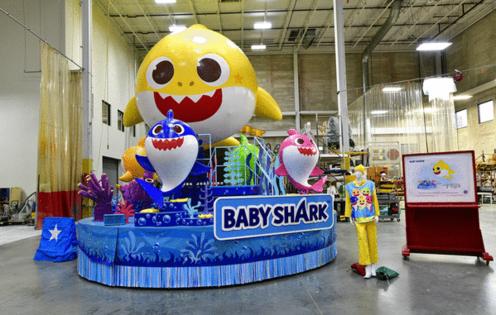Commentary: If 'Baby Shark' represents the worst of children's music, this is the genre's best
Published in Op Eds
It was date night for me and my husband, the first since our daughter was born. When we returned to my mom’s house for the baby — hurriedly, being first-time parents — I heard a strange but familiar voice.
It was that of Raffi Cavoukian, known simply as “Raffi,” who rose to fame in the 1970s with such folksy, reassuring numbers as “Baby Beluga,” “Bananaphone” and “Mr. Sun.” It had been more than 20 years since I had heard any of his songs, though I found they were still etched in my heart, like the words of “Goodnight Moon” or the feel of the tattered old blanket my grandmother knit for me.
In stark contrast to Raffi’s catalog, much modern kids’ music has been criticized as “nauseating,” “terrible” and “enough to drive any loving parent to complete insanity.” It’s a problem for children as well as parents, especially considering the importance of music in early life.
Research suggests music plays a crucial role in reducing infants’ stress and developing the regions of the brain that process speech. Studies also show that music can cultivate sharing, empathy and trust in young children while offering a healthy outlet for them to deal with and express their emotions.
Still, most popular children’s songs today continue to owe a debt to “Baby Shark” — the “trash heap” that cracked the Billboard Top 40 while amassing millions of streams a week in the run-up to the 2016 election. Despite its torturous aspects, the song generated enormous interest and investment, encompassing themed merchandise, a 100-date tour and a show on Nickelodeon.
Viral sensations such as “Baby Shark” come and go, but some songs — and some artists — transcend their eras. Today we all walk around with the equivalent of portable jukeboxes in our hands, able to access virtually every song known to man for ourselves and our children. Our options are endless, yet my husband and I keep returning to Raffi, who has become one of the most played artists in our home.
Born in Egypt in 1948 to survivors of the Armenian genocide, Raffi spent most of his childhood in Toronto, where his family moved when he was 10. Inspired by artists such as Bob Dylan and Leonard Cohen, he tried for years to make it as a folk singer, though according to his autobiography, he “hated singing to inebriated audiences who couldn’t care less if (he) was there or not.”
In the mid-1970s, Raffi was invited to play music for children at the school where his mother-in-law worked. He was hooked. Over the next two decades, he produced more than a dozen studio albums and hit after hit, becoming by some accounts the most popular children’s singer in the English-speaking world.
Unlike much of today’s children’s music, Raffi’s is known for his gentle, James Taylor-esque tones and simple, acoustic instrumentation. His voice is clear, soothing and sweet without being cloying or campy. He is not only a great kids’ artist but also, as one critic put it, “a great modern folk singer who just happens to sing children’s songs.”
For all its tranquility, Raffi’s music was born in the turbulent 1960s and ’70s, a time with parallels to our own. Like a Cat Stevens for kids, Raffi makes music that emphasizes love, kindness and the dignity of every person, reflecting his decades of advocacy for the environment and children’s rights.
His biggest hit, “Baby Beluga,” offers kids a blueprint for becoming an individual — swimming “so wild” and “so free” — while still feeling safe and loved by their parents. “One Light, One Sun” implores its listeners to treat the Earth as precious, while “Everything Grows” explains that we are all ever-changing, even the “mamas” and “papas.”
Implicit in Raffi’s songs is an awareness that we should not shield children from the hard topics. Yet it is love, not sorrow, that prevails as Raffi’s motive and message.
“In a state of shock, life goes on,” he wrote on social media the morning after the November election before quoting Leonard Cohen: “There are children in the morning, they are leaning out for love, they will lean that way forever.”
Raffi is still popular today, though perhaps not to the extent that he should or could be. A 2015 Vulture profile noted that when the producers of “Shrek” wanted to make a movie based on “Baby Beluga,” he said no because it would have involved advertising directly to children. He also declined to play Madison Square Garden, fearing that the venue would be too intimidating for his audience.
Raffi, now 76, is still touring. For my daughter’s first birthday, I looked into buying tickets but was met with a disclaimer: “A Raffi concert is best suited for children old enough to talk, sing or clap long. … While babies are welcome, they may not enjoy a loud concert singalong.”
“All righty,” I said to my daughter, still goo-ing and ga-ing. “Now we have something to look forward to.”
____
(Cornelia Powers is a writer who is working on a book about the golfer Bessie Anthony, her great-great-grandmother.)
_____
©2025 Los Angeles Times. Visit at latimes.com. Distributed by Tribune Content Agency, LLC.




























































Comments